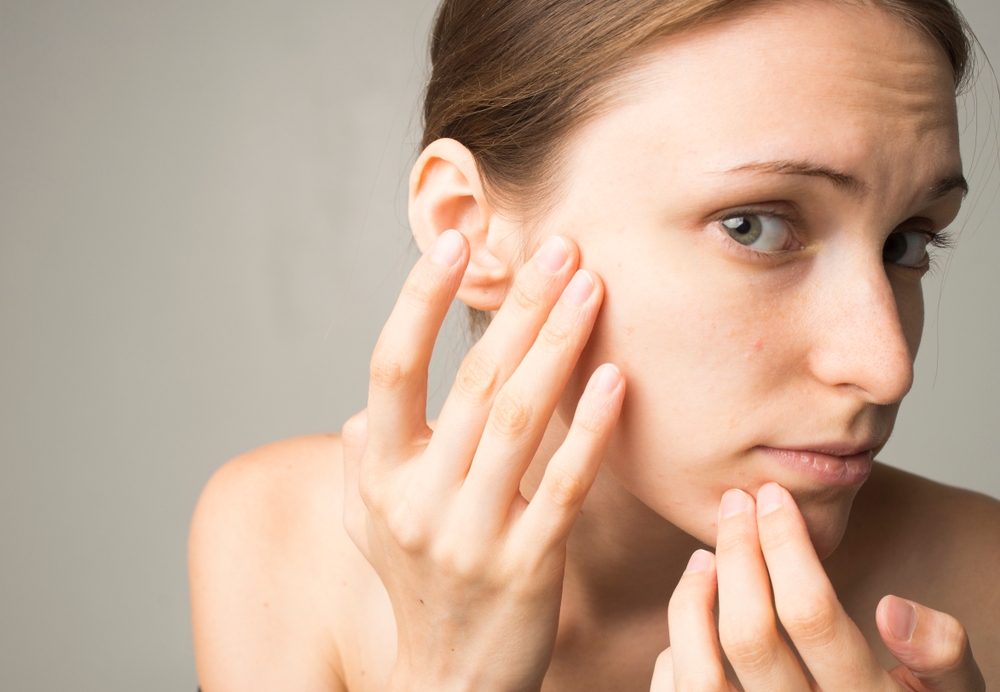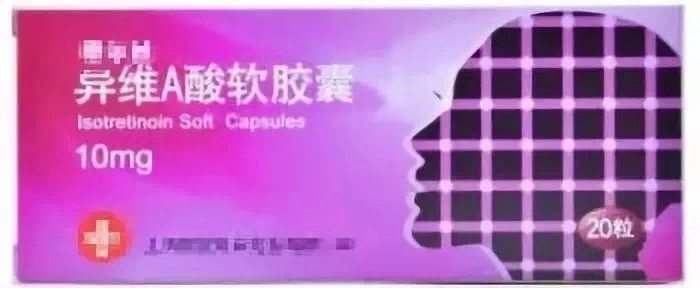Other people’s youth is youth struggle, love, girlfriends, entrepreneurship and dreams.
My youth is to fight against acne. I haven’t been in love yet, but the doctor advised me to take birth control pills.
What? Can contraceptives actually treat acne?
Today we will talk about contraceptives.
First of all, let’s stroke: Why do people use to call acne [acne]?
Acne, also known as acne?
The high incidence of acne is during puberty (although there are neonatal acne, there are also many adult acne). There are reports that 70% ~ 87% of teenagers may develop acne.

[Acne] can be said to be one of the topics that cannot be ignored during puberty.
Adrenal and gonadal development after puberty;
Under the action of a series of metabolic enzymes, androgen precursors are converted into active dihydrotestosterone, which stimulates sebaceous gland function to enhance, resulting in a large amount of sebum secretion and abnormal keratinization of hair follicle sebaceous gland duct;
Coupled with infection, inflammation and immune response, various manifestations of acne lesions are formed.
However, many acne friends will check the blood hormone level and find that the test results such as androgen are normal.
This may be related to the expression or activity enhancement of related androgen metabolizing enzymes and androgen receptors.
Just like drinking five cups of milk tea, some people have no effect. Some people absorb it better, so it is easy [half a month].
Contraceptive pill, can treat acne?
Compound oral contraceptive drugs (COCs) contain estrogen and progesterone components, which can inhibit gonadotropin releasing hormone, follicle stimulating hormone and luteinizing hormone, thus playing a contraceptive role.
The principle of contraceptive pill in treating acne is to block androgen receptor and reduce the activity of androgen metabolizing enzyme through anti-androgen effect. It can also directly act on hair follicle sebaceous gland to reduce sebum secretion.
Who can take contraceptives to treat acne?
Contraceptives can be used not only for contraception and improvement of acne, but also for other purposes: regulating menstrual cycle, reducing dysmenorrhea and related anemia, reducing benign ovarian tumors, etc.
However, it should be noted that contraceptives cannot be taken casually, let alone [panacea] for acne treatment.
1. Who is not suitable for contraceptives?
Men don’t eat!
Do not eat for female patients within two years after menarche or less than 14 years old!
Can’t eat during pregnancy and lactation!
If you have a history of venous thrombosis or heart disease, you cannot eat it!
People over 35 years old and smokers cannot eat!
Mild acne, mainly acne, does not need to be eaten!
2. Who is suitable for contraceptives?
In clinical practice, antiandrogen is more suitable for the following acne female friends:
Accompanied by hyperandrogen (acne is more common in the middle and lower face, especially in chin and lower jaw, irregular menstruation, excessive hair such as lip hair, etc.).
The acne before menstruation is obviously aggravated.
Conventional oral or external treatment effect is not obvious or easy to relapse, etc.
3. Precautions and Adverse Reactions
At present, commonly used contraceptives for acne treatment include ethinylestradiol cyproterone, estradiol drospirone, etc.
Whether to choose contraceptives to treat acne and how to correctly choose and use drugs must be carried out under the guidance of doctors.
Possible adverse reactions of drugs include: small amount of uterine bleeding, breast pain, nausea, weight gain, deep vein thrombosis and occurrence or aggravation of chloasma.
Anti-acne oral medicine: isotretinoin
Attention: There is also an anti-acne drug. Although it is not a contraceptive, it must be used for contraception.
1. Drug characteristics
Oral isotretinoin is not a contraceptive pill, but clinical treatment will repeatedly emphasize that contraception should be carried out within at least 3 months after taking and stopping the pill.

Isotretinoin is one of the most effective oral drugs for the treatment of acne at present, and has effects on many etiological links of acne.
Isotretinoin can significantly inhibit sebaceous gland secretion, improve hair follicle sebaceous gland duct keratosis, inhibit bacteria and anti-inflammation, and can also prevent scar formation.
Isotretinoin is more suitable for moderate and severe acne. Acne with a tendency to form scars; Or acne accompanied by significant sebum overflow, etc.
2. Adverse reactions
Isotretinoin is teratogenic to the fetus and requires strict contraception during treatment and within at least 3 months after treatment!
Do not take it under 12 years old to prevent the influence on bones.
The most common adverse reactions are dry skin and mucous membrane, especially dry lips, but dryness is also a manifestation of drug effect.
Mild dryness can be relieved by strengthening the application of moisturizing cream or lip balm. If dryness is obviously intolerable, the dosage of drugs can be reduced under the guidance of doctors.
Long acne, need to check hormone?
In fact, I don’t often suggest friends with acne to test hormone levels, because most hormone levels are normal.
However, for female patients suspected of hyperandrogen manifestations, such as persistent acne, excessive hair such as lip hair and axillary hair, early onset body odor, abnormal menstruation, seborrheic alopecia, etc., it is better to check hormone levels.
If the symptoms are obvious or the examination results are abnormal, further clinical or laboratory examination is required at a specialist to find the potential cause.
Just as we will miss a good play because the male host is not handsome enough and the female host is not beautiful enough, sometimes we will ignore other effective effects because of the name of a drug.
